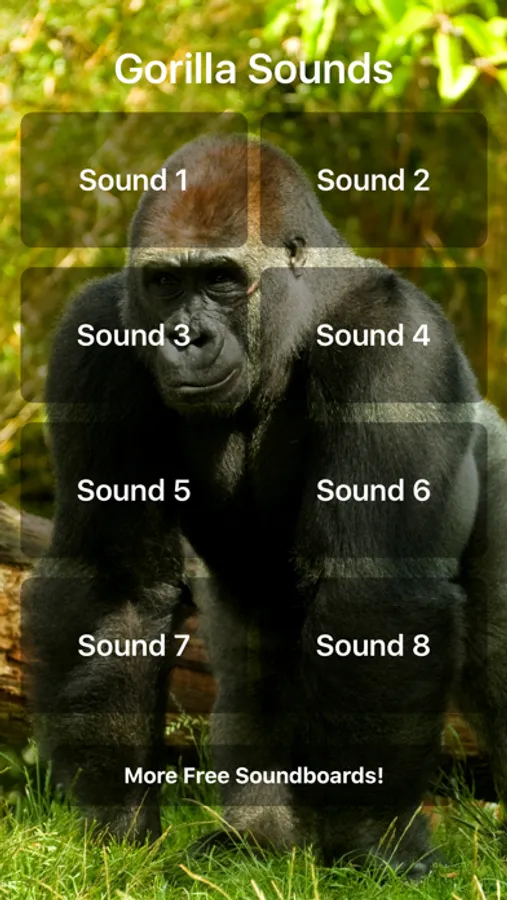About Gorilla Sounds
No need to travel to Africa to hear amazing gorilla sounds!
Often mistakenly thought of as a giant monkey, gorillas are actually not monkeys but are an ape in the primate family. Unlike some primates, gorillas primarily dwell on the ground rather than in trees, perhaps due to their large size. Gorillas walk on their back legs and their front knuckles, though they occasionally walk short distances on just two feet like humans! In fact, behind chimpanzees and bonobos, gorillas have the third most similar DNA to humans!
Gorillas typically live in troops consisting of one silverback, aptly named for the characteristic silvery grey fur on the back of mature males, and multiple females and offspring. Due to their social structure and the densely vegetated habitats in which they live, verbal communication is very important for gorillas! Gorillas have at least 25 different vocalizations used to communicate with other troop members! Gorillas may grunt or bark to communicate their location, while louder roars or screams typically act as a warning of danger. Snorts, belches, howls and other unique sounds can also be heard from gorillas!
In addition to making vocal sounds, gorillas also use non-verbal communication in the form of body language. For example, gorillas thump their chests to show dominance and engage in a highly ritual set of behaviors when confronting a fellow gorilla in conflict.
Learn about amazing gorilla sounds today with this app featuring gorilla calls just like you’d hear in the wild!
Often mistakenly thought of as a giant monkey, gorillas are actually not monkeys but are an ape in the primate family. Unlike some primates, gorillas primarily dwell on the ground rather than in trees, perhaps due to their large size. Gorillas walk on their back legs and their front knuckles, though they occasionally walk short distances on just two feet like humans! In fact, behind chimpanzees and bonobos, gorillas have the third most similar DNA to humans!
Gorillas typically live in troops consisting of one silverback, aptly named for the characteristic silvery grey fur on the back of mature males, and multiple females and offspring. Due to their social structure and the densely vegetated habitats in which they live, verbal communication is very important for gorillas! Gorillas have at least 25 different vocalizations used to communicate with other troop members! Gorillas may grunt or bark to communicate their location, while louder roars or screams typically act as a warning of danger. Snorts, belches, howls and other unique sounds can also be heard from gorillas!
In addition to making vocal sounds, gorillas also use non-verbal communication in the form of body language. For example, gorillas thump their chests to show dominance and engage in a highly ritual set of behaviors when confronting a fellow gorilla in conflict.
Learn about amazing gorilla sounds today with this app featuring gorilla calls just like you’d hear in the wild!
